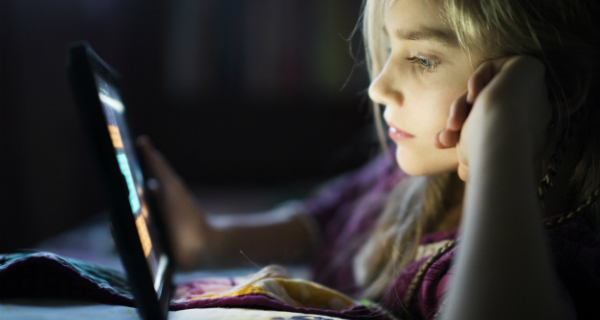It can be hard to regulate screen-time for teenagers especially when so much of the information which will benefit their school studies is most readily available online. How do you know when they are researching World War II dugouts, or when they are posting to Instagram, sending Snaps to friends and WhatsApp-ing until midnight?
Karl Hopwood is a leading independent e-safety expert who presented to our Boarders and S2 children on their digital footprints. Here are his top 5 tips for helping your child stay safe and behave responsibly online:
- Talk to your children about what they do online. This is easy to say but more challenging to do – as parents we take a real interest in the things our children do when they are offline – we want to know where they are going and who they will be with etc. but when they are online, gaming or using social media we tend to not have the same level of dialogue with them.
- Know which apps and platforms they are using. Having some knowledge of the apps that your children use means that you can help them to use them safely. For example many of the popular apps (Instagram, Musical.ly, Tumblr) are public by default. Although lots of young people do think that lots of followers is important (and some think it is a sign of popularity), most do not want to allow random strangers to be able to contact them. If we know that they are using a particular app we can have a conversation with them about the safety aspects.
- Don’t overreact! Again, easier said than done, but if our children come to us with something that’s gone wrong online or if we discover them doing something which we think is inappropriate then it’s important not to overreact. Dialogue and discussion is so important and we want our children to be able to talk to someone if there is a problem. It’s a normal reaction to be shocked and horrified when we find out that our child has been looking at pornographic websites but we need to remember that children and young people have always been curious – in our day perhaps it was people looking up rude words in the dictionary, not really the crime of the century, but nowadays they will do that online and of course the content that they get back is much more extreme than anything they would have ever found in the Oxford Junior Dictionary. If they come to us with a problem they’ve encountered online then we need to ensure that our reaction means they will feel safe to come back the next time too.
- Use some filtering. We know that there is some particularly unpleasant content online and we should use some filtering to prevent our children being exposed to some of the worst of this. We don’t want them to be able to access pornographic or extreme content and most internet service providers will help with this - https://www.internetmatters.org/parental-controls/networks-wifi. We also need to realise that quite a lot of content in the mainstream media now can be very upsetting and explicit, hence the need for dialogue and discussion.
- Don’t let them sleep with devices. At least not when they are younger – it’s fine for them to have phones and tablet devices but they should put them out of the bedroom when they are going to sleep. Ultimately they need to learn to manage this on their own – we won’t be going off to university with them – but they can’t do this effectively when they are younger. Having such a powerful device in the bedroom means that they can be easily distracted and there is even evidence which suggests that a phone which is switched off can have a negative impact (http://www.telegraph.co.uk/science/2016/10/31/smartphones-and-tablets-in-bedrooms-disrupt-sleep-even-when-swit/). Choosing the argument is important – telling them they can’t keep their phone in their room because we don’t trust them and don’t know what they might be doing on there isn’t a good start, but saying that we all need to charge devices in the kitchen as we all need to be able to go to sleep might be better.






